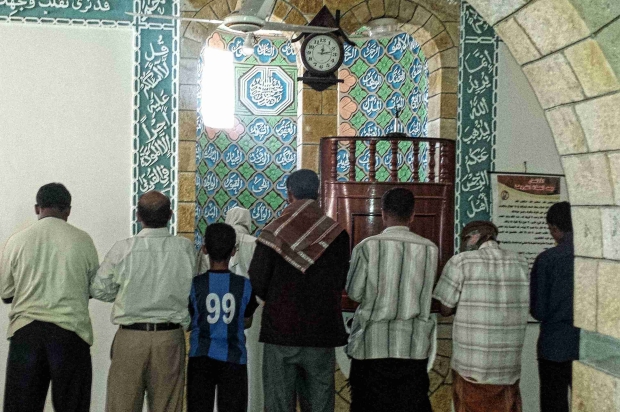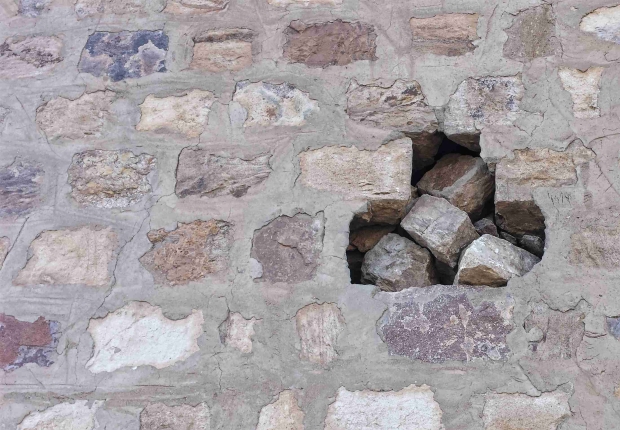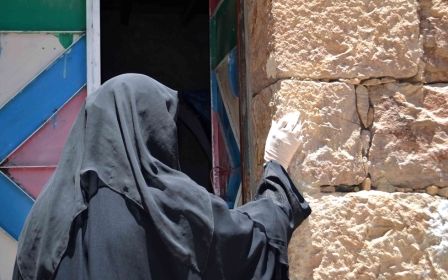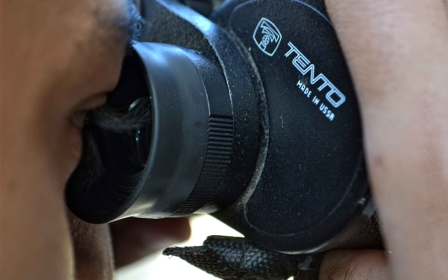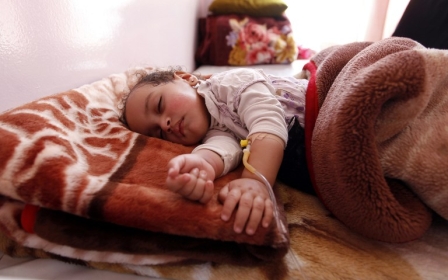Criminals escape from jail and go seeking revenge amid Yemen war

TAIZ, Yemen - Akram was praying alone, after evening prayers, when the brick hit his head, leaving him bloodied and bruised.
"I did not expect that an idiot would attack me at the mosque," says the imam, recalling the incident in April. "I was praying safely and could not easily understand what had happened. When I looked behind me, I saw the criminal fleeing the mosque. But I could not stop him because I was bleeding."
I called the prison to ask what had happened. They told me that 52 prisoners had escaped that very morning. I cannot believe how it is easy for prisoners to escape
- Akram, victim
Akram, who asked that his real name not be used for his own safety, recognised his attacker. It was not the first time during the past few months that he and his family, who live in the al-Turba area, about 70km from Taiz city, had been victims of his crimes.
Last year, Akram's home was raided by the same man, who first tied his seven-year-old daughter to a column to prevent her from shouting out before stealing valuables including jewellery and cash.
Akram complained about the thief to the pro-government Popular Resistance movement, who caught the offender and took him to the central prison, where he was awaiting sentencing.
But when the imam returned from hospital, he received shocking news: his attacker was free again.
"I called the prison to ask what had happened," he says. "They told me that 52 prisoners had escaped that very morning. I cannot believe how it is easy for prisoners to escape. It is hard to accept."
Akram's attacker had already fled Taiz province towards al-Hodeida province, a favoured destination for escaped prisoners, who know that no one can arrest them in the Houthi-controlled area.
But Akram and his friends still live in terror: they are not certain that he has left the region, amid rumours that he lives in a nearby valley.
"If Allah wrote that destiny is to be killed by this criminal, then I cannot do anything as this is fate," he says. "But I am doing my best to protect my children.
"Last time he tried to kill my daughter and recently he tried to kill me. I do not allow my children to leave the house alone."
How to escape with spoons and spanners
Akram's attacker is but one of many criminals who have made the most of the collapse in law enforcement during Yemen's two-year war.
In June 2015, an estimated 1,200 prisoners fled the central prison in Taiz city after a Saudi-led coalition air strike targeted the facility: only around 200 have been recaptured.
On 18 April 2017, 11 prisoners including members of al-Qaeda escaped from the central prison in Shabwa's Ataq city.
A group of us started to dig a hole in the wall of the prison while others created a noise by singing. Early on the morning of 23 April we were able finish the hole
- Mirwan, criminal
And on 23 April 2017, 52 prisoners – including Akram’s attacker – escaped the central prison in the al-Turba area.
All of those prisoners had committed serious crimes including murder, attempted murder and house-breaking: some had been sentenced to death.
Victims like Akram are often left to fend for themselves should the criminal come looking for revenge: the pro-government forces are too busy fighting against the rebels.
Escaped prisoner speaks
MEE spoke to the escaped prisoner who attacked Akram and asked that he be known as Mirwan. He does not deny the attack and says that he tried to kill the imam because of extra charges made against him while in prison.
Mirwan remained in the area for three days after the attack at the mosque: none of the residents dared try and arrest him, while pro-government forces could not locate him.
He said that if he had only been accused of stealing then he could have left prison six months ago, but the extra accusations had prolonged his detention.
Mirwan said that he and 53 other prisoners began planning their escape in late March 2017, when they began hoarding spoons and spanners in their pockets to use as tools.
"A group of us started to dig a hole in the wall of the prison while others created a noise by singing," he says. "Early on the morning of 23 April we were able finish the hole. Fifty-two prisoners escaped: only two disabled prisoners remained inside."
After he escaped, Mirwan took revenge on Akram before fleeing. "I will travel to Hodeida where I can live more freely than in Taiz," he says.
The best place for my son is prison. I ask the pro-government forces to arrest him to make it safe for the rest of us
- Father of escaped prisoner
The father of the escaped prisoner confirmed that his son is a criminal and that he had not seen him at the family home since the breakout.
He put the blame for the escape – and the subsequent attack at the mosque – on the lack of security at the jail.
"My son was in prison and he should not have left it until his trial had ended. But the pro-government forces did not increase the number of guards around the prison. I live in terror myself nowadays, as I am also against my son, who creates terror among residents."
His father said that his son had disobeyed him, broken into more than one home and was prepared to commit any crime.
"The best place for my son is prison. I ask the pro-government forces to arrest him to make it safe for the rest of us."
Crime during wartime
The authorities eventually arrested less than a third of the escaped prisoners and are trying to find the rest.
But it is unlikely: many have already fled Taiz province and the government’s jurisdiction in the war-torn country.
"We know that they fled to other provinces, but we are doing our best to arrest them."
Sofi said that more than 20 crimes were committed in the two days after the prisoners escaped, as the criminals sought vengeance on those who had landed them in jail.
"The security forces know how dangerous it is that those prisoners escaped. Most of the guards had left to fight the Houthis, so the prisoners took advantage of that."
'The security forces know how dangerous it is that those prisoners escaped. Most of the guards had left to fight the Houthis, so the prisoners took advantage of that'
- Abdulaziz al-Sofi, prison guard
al-Thobhani said: "When the criminals see prisoners can escape from prisons, they no longer fear the security forces. They then do what they want in the hope they will be able to escape detention.
"To keep society safe is more important than fighting. We need the security forces to work to make society safe from criminals."
Akram agrees. "I complained to the security forces about being attacked at the mosque. They said they cannot do anything because they do not know where the criminal is."
He now accompanies his children to school every day. At noon he takes them back to the house. He does not leave his home after evening prayer.
Akram does not dare stay alone at the mosque.
"I am not going to appeal to the resistance," he says, "but I pray to Allah every time to save us from criminals and keep our society safe. Allah knows everything. I pray Allah not to make us victims of criminals again."
This article is available in French on Middle East Eye French edition.
New MEE newsletter: Jerusalem Dispatch
Sign up to get the latest insights and analysis on Israel-Palestine, alongside Turkey Unpacked and other MEE newsletters
Middle East Eye delivers independent and unrivalled coverage and analysis of the Middle East, North Africa and beyond. To learn more about republishing this content and the associated fees, please fill out this form. More about MEE can be found here.


